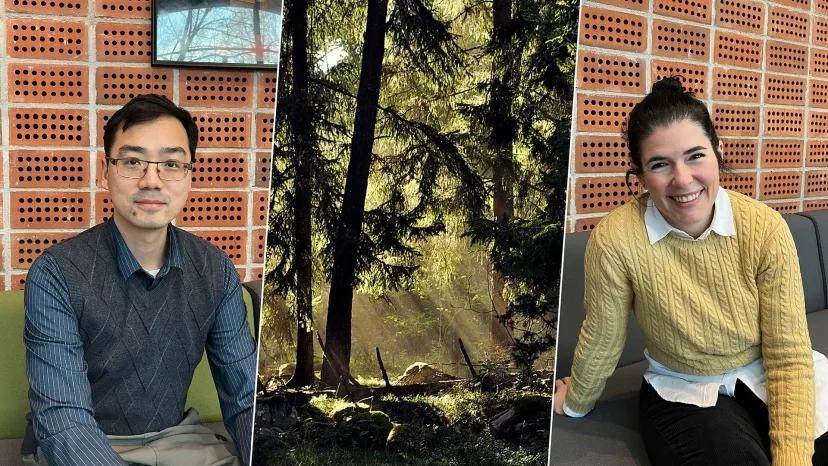To facilitate the transition to a green, circular economy, there is a growing demand for new materials sourced from sustainable resources. In response, Chalmers University of Technology and the Wallenberg Wood Science Center are taking a forward-looking approach by appointing two new Assistant Professors specializing in innovative materials derived from trees.

Liyang Liu och Amparo Jimenez Quero, new Assistant Professors at Chalmers and Wallenberg Wood Science Center. Image Credit: Chalmers University of Technology
Chalmers is a partner in the Wallenberg Wood Science Center (WWSC), a research institution that focuses on developing new materials made of trees and generates knowledge and expertise for a sustainable future. Liyang Liu and Amparo Jimenez Quero were recently hired as Assistant Professors at Chalmers to expand and enhance the Center's scientific competency.
We are extremely pleased to have recruited a new generation of highly promising researchers to Chalmers and WWSC. They will bring exciting new expertise and can contribute to many interesting research collaborations.
Lisbeth Olsson, Professor, Department of Industrial Biotechnology, Chalmers University of Technology
Understanding Lignin Can Lead to Innovative Materials
Liyang Liu, an Assistant Professor in the Chemical Engineering Division, studies the structural characteristics of lignin, the primary ingredient in wood. The information can be utilized to make powerful adhesives, 3D printing inks, nanocomposite materials, and environmentally friendly polymeric foams.
WWSC is a world-leading research center on wood and its valorization for making innovative and sustainable materials. Chalmers has a long history in wood science and lignin research. As a chemist working on bio-based materials chemistry, it is my dream to work in such a prestigious institute and continue my research on biorefinery and green chemistry.
Liyang Liu, Assistant Professor, Department of Chemical Engineering, Chalmers University of Technology
Why is the Research Important?
Liyang Liu adds, “Lignin from terrestrial plants has versatile and functional chemical structures, leading to advanced physical properties and unique biological activities. Understanding the structure-property of these macromolecules will allow us to create advanced polymeric materials with improved materials performance – but also a reduced environmental footprint.”
Side-streams from Industrial Processes as Primary Resources
Amparo Jimenez Quero is an Assistant Professor in the Division of Industrial Biotechnology who focuses on green extraction techniques and the characterization and valorization of biomass. She also uses filamentous fungi in the creation of biocomposite materials and as a biotechnological tool.
The WWSC initiative exemplifies how industry and academia can collaborate to create a more sustainable society. My aim is to bring impactful solutions through research, relying on the support of industrial partners to guide and financially support our endeavors. By doing so, we not only propose solutions but also educate future engineers to implement these solutions in the private sector.
Amparo Jimenez Quero, Assistant Professor, Department of Industrial Biotechnology, Chalmers University of Technology
Why is the Research Important?
Amparo Jimenez Quero adds, “In a society marked by excessive consumption and improper waste disposal, adopting a circular approach is crucial. Integrating side-streams from industrial processes as primary resources not only reduces waste but also utilizes undervalued resources for materials, food, feed ingredients, and medical or cosmetic applications.”